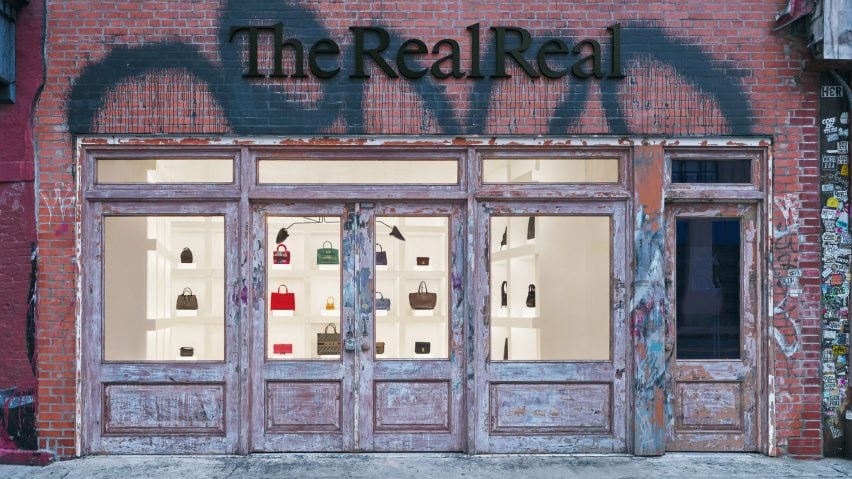
Mythology and TheRealReal spotlight "counterfeit crisis" with installation in New York
Promotion: creative agency Mythology has collaborated with luxury online marketplace TheRealReal to curate an installation filled with fake luxury handbags in New York.
Located on Canal Street in Lower Manhattan, the installation aims to draw attention to what Mythology describes as fashion's "counterfeit crisis" and its impact on people and the planet.
The space is intended to initially appear as a luxury handbag store but, upon closer inspection, reveals itself as an exhibit of unattainable designer dupes.
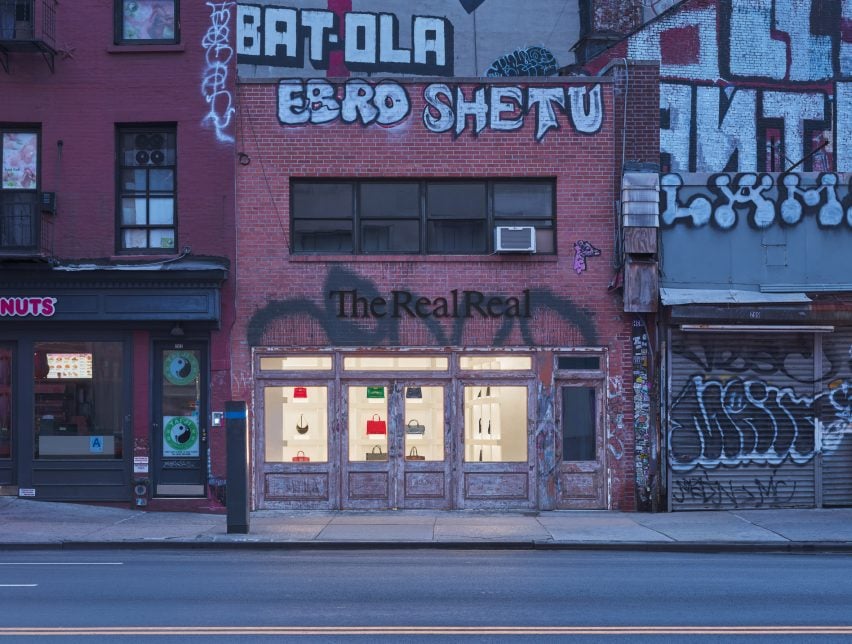
"When TheRealReal approached us, they presented a critical marketing challenge: consumers weren't fully grasping their value proposition or understanding the true cost of counterfeit goods," said Mythology director Ted Galperin.
"Our response was to leverage experiential retail as a powerful storytelling medium," he added.
Mythology was tasked by TheRealReal to find a way to articulate the challenges posed by counterfeit goods in the luxury market.
"When TheRealReal approached Mythology, we set out to create an honest dialogue on consumerism and authenticity," added Mythology director Ted Galperin.
"Every passerby must do a double-take, questioning the validity of our perpetually closed store, much like they would when judging a handbag's authenticity," Galperin said.
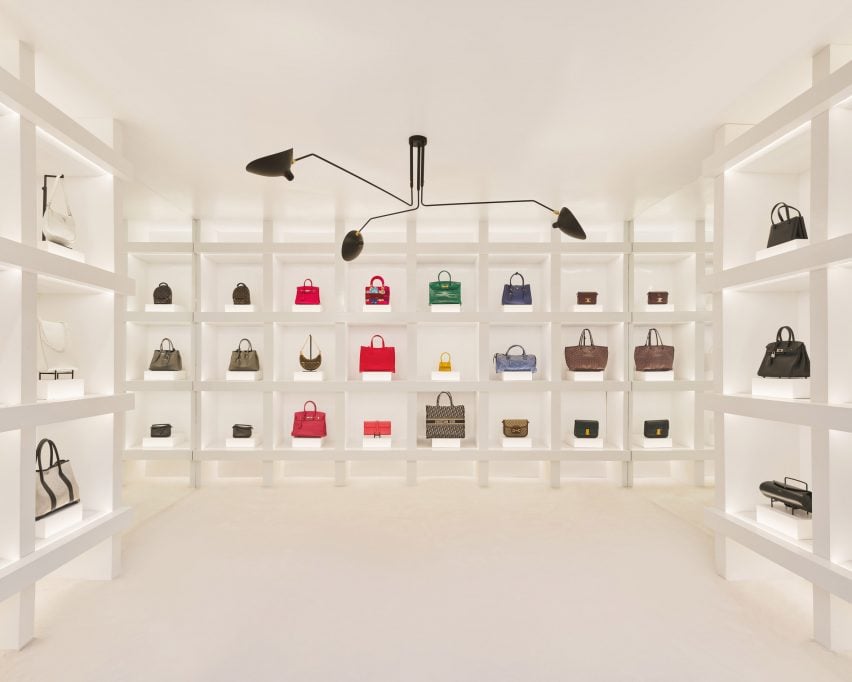
On display until early September, the installation has been timed to align with the peak tourist season in New York, which sees an increase in counterfeit buying, according to Galperin.
The disorienting concept is itself a "fake" store front, "perpetually closed", telling the story of a company with the word "real" in its name, said Galperin.
"This juxtaposition aligns with The RealReal's mission to spark conversations about what is real and fake in the luxury pre-owned market," he said. "The balance between the familiar retail aesthetic and the unexpected installation creates a memorable experience that educates and engages."
Meanwhile, its position in Lower Manhattan was chosen as the "street is synonymous with counterfeit culture", Galperin added.
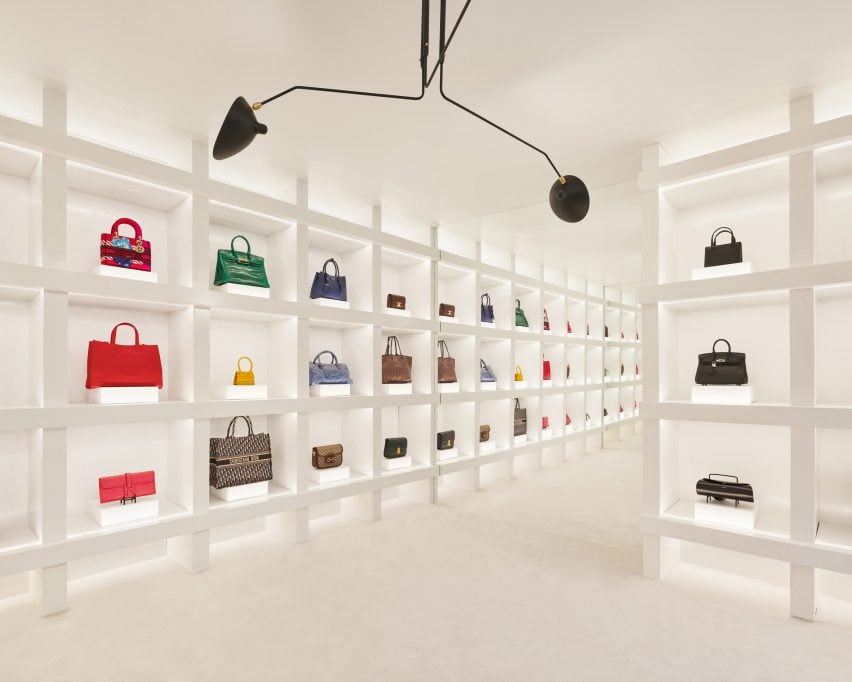
From the outside, the installation resembles a new store owned by The RealReal, stocked with 35 luxury bags. However, on the window, passersby will then see its hours are listed as closed from Monday to Sunday.
Alongside this is a QR code that directs observers to a webpage, revealing that the store is just an installation exhibiting fake handbags to draw attention to the problem of counterfeits.
Mythology has been a keen advocate of designing physical spaces as places for consumers to interact. "Our team at Mythology excels at designing spaces where the story and space work hand in hand to make a lasting impact," the studio said.
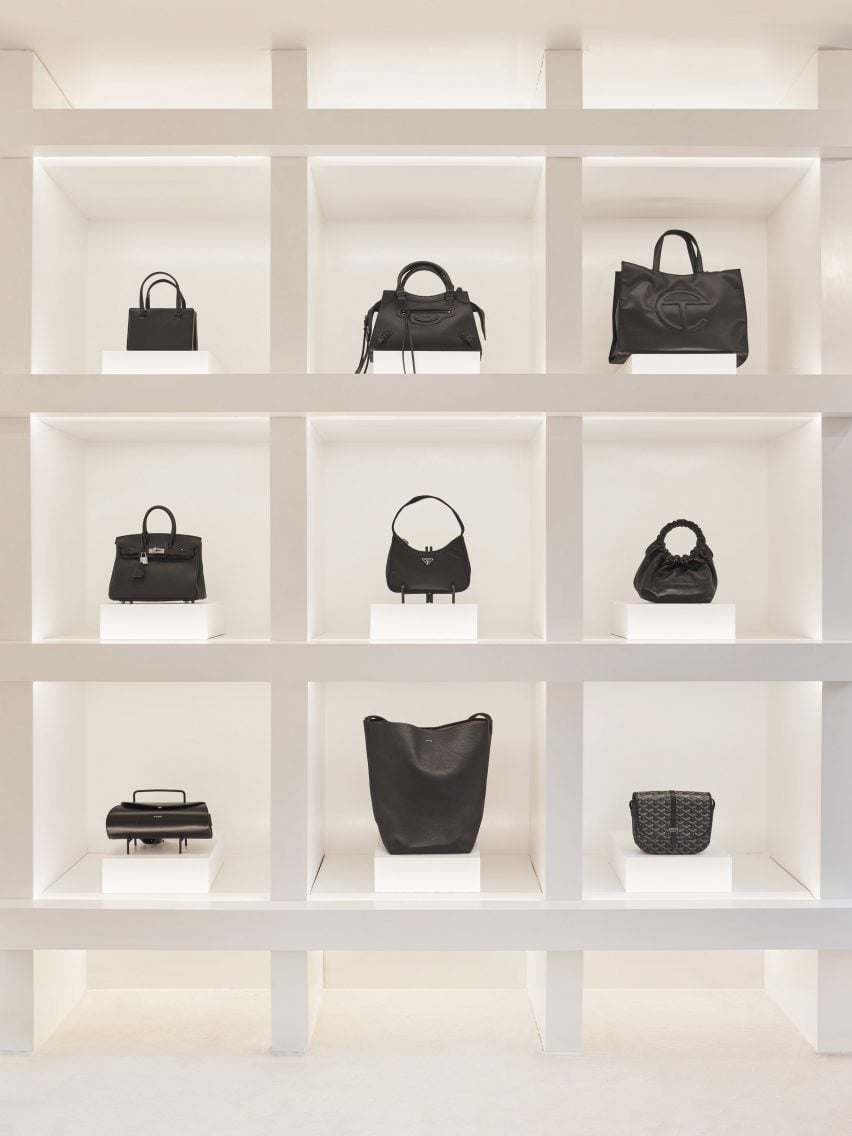
"[The bags] won't be for sale because this store will never open or sell anything," said Mythology.
"In fact, in an office above the store, reminiscent of the back rooms of Canal Street where the 'best' fakes are sold, we'll hold activations that honour what's real."
As part of the project, people will be invited to turn in their luxury dupes each month and in turn, enter a competition for a chance to win the real version from The RealReal.
According to the online marketplace's president Rati Sahi Levesque, the hope is that passersby and owners of counterfeit items will learn about its wider impact on people and the planet.
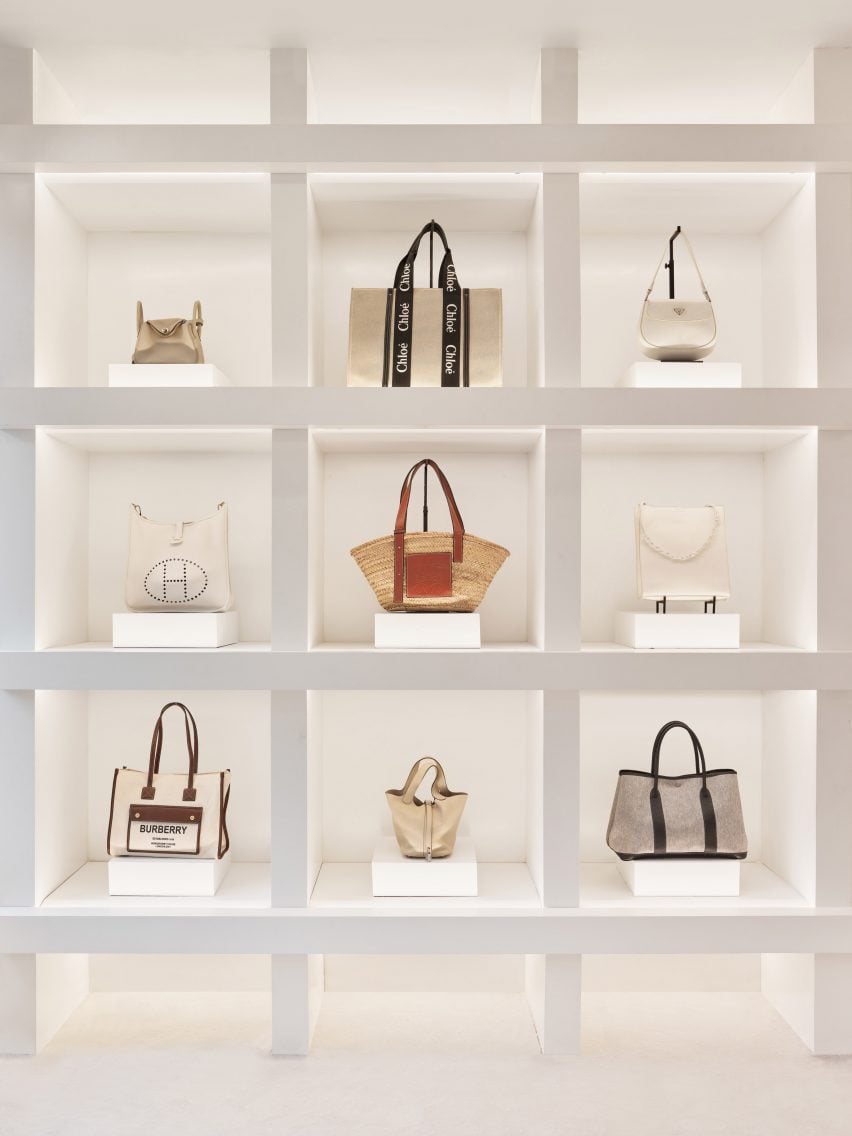
In particular, it hopes to shine a light on the fact that these fake designer products are often linked to syndicates funding terrorism, illegal firearms and narcotics, and are made by people working in unsafe and unethical conditions.
At the same time, counterfeit goods often use low-quality, short-lived and sometimes harmful materials that are likely to end up in landfills.
"The space challenges traditional shopping norms by focusing on the intersection of art and retail. It introduces a new model where the store is not just a place to buy goods but a medium for storytelling and social commentary," said Galperin.
For more information on the installation, visit therealreal.com and mythology.com.
The photography is courtesy of Olympia Shannon.
Partnership content
This article was written by Dezeen for Mythology as part of a partnership. Find out more about Dezeen partnership content here.